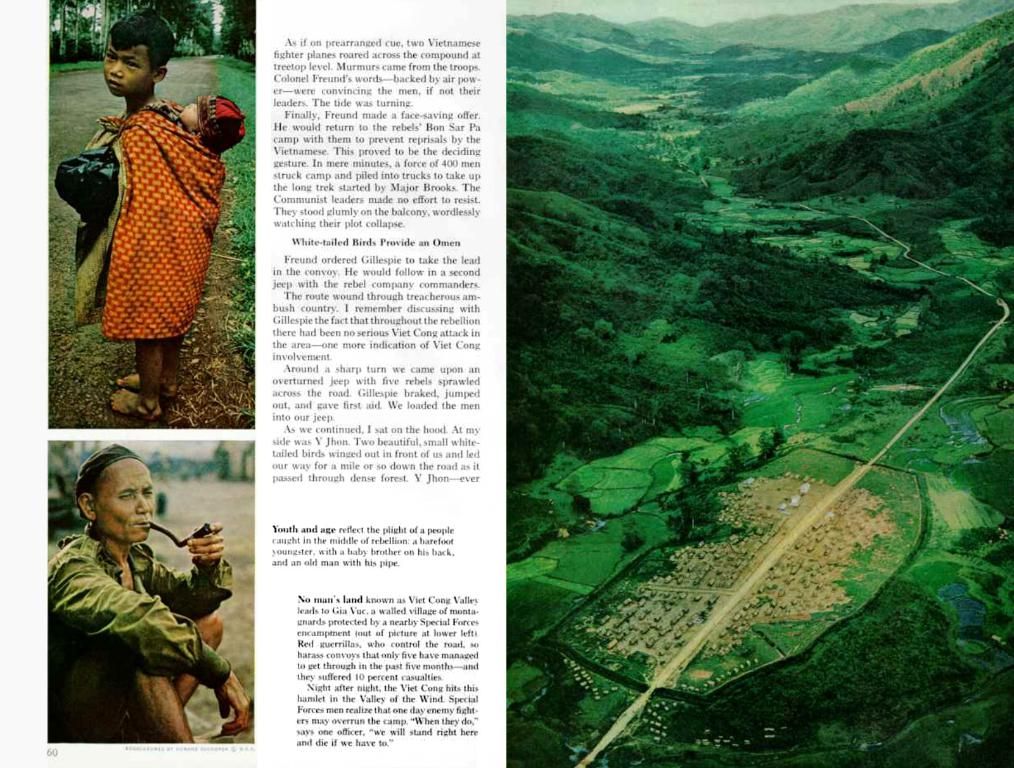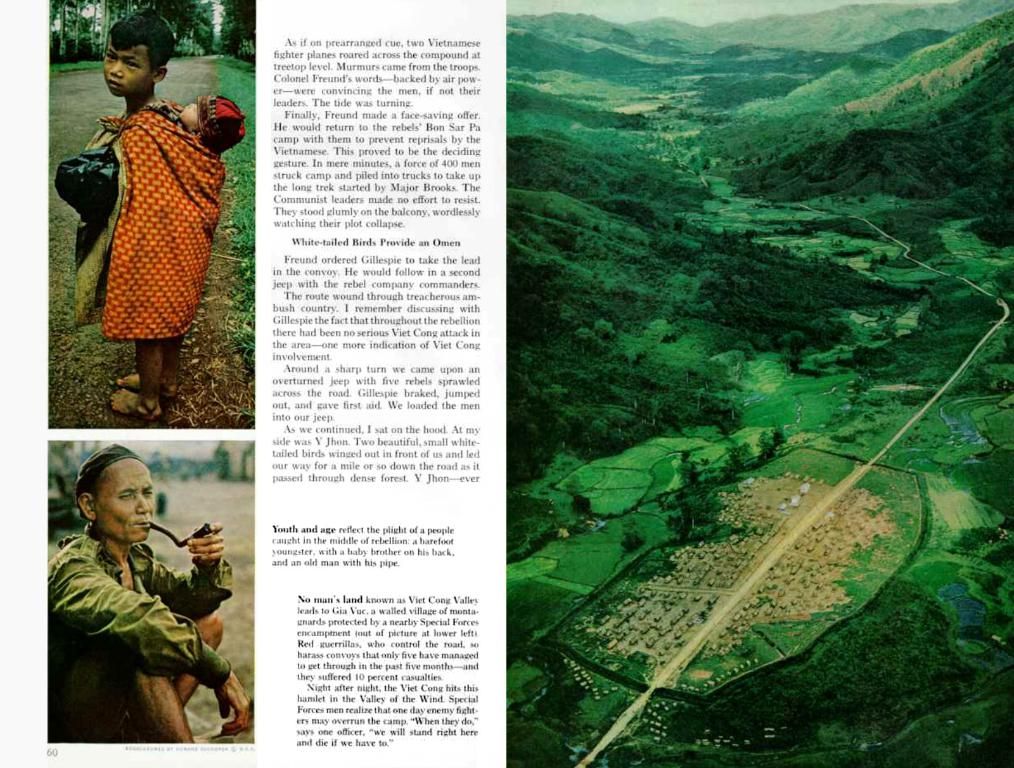FNB Acquires Brand Crisis Management Team
Headline: The Springbok Brand Breaks Away from the Past: A Global Hero and Valuable Asset
In a surprising turn of events, the Sunday Times' headline "SA Rugby gets more bang for the Boks" might have seemed overly dramatic. But it was the brand's hidden potential that had been revealed - the Springbok team, a powerhouse not only in local rugby but globally, was worth more than South Africa realized, boasting significant financial and emotional value.
Back in the day, accountants were obsessed with hard assets like buildings and machinery, pondering overlooked aspects such as brands that outlived their tangible counterparts. In a powerful quote from 1900, the chair of Quaker Oats, John Stuart, asserted that he would rather have the brands, trademarks, and goodwill over the bricks and mortar - proving that intangibles have long played a crucial role in a brand's value.
It's no secret that brands are more than just mysterious puffs of smoke. Today, brands encompass everything from countries to people, materializing as valuable assets that can be bought, sold, licensed, and cherished. British marketing consultant John Murphy once famously declared that brands are "things" to be treated seriously and comprehensively, shedding light on their potential for lasting impact.
Post-1995, the Springbok brand underwent a significant transformation, transitioning from a divisive symbol associated with apartheid to a globally-recognized emblem of unity and excellence. Nelson Mandela's supportive intervention following the World Cup victory helped clear the air and galvanize the brand's new identity.
Louis Luyt, then president of SA Rugby, foresaw the need to preserve the Springbok brand's rich history and heritage. Danie Craven, tucked away in Stellenbosch, had meticulously preserved a scrapbook tracing the evolution of the Springbok badge. The redesign of the emblem was crucial, but any changes had to be made with care to protect the brand's equity and prevent potential trademark challenges.
As the Springbok brand evolves, it continues to leave a lasting impression. The team's recent achievements, including back-to-back World Cup titles, have solidified its status as rugby's most successful modern team, with innovative coaching strategies now widely emulated by others.
Commercially, the Springbok brand has entered new territory through major national sponsorship deals and partnerships with companies like Pick n Pay. The brand's reach extends beyond elite-level success, focusing on women's rugby and community development programs. In a world where shared South African resilience, innovation, and cultural currency are celebrated, the Springbok brand stands tall as a premium sponsorship asset.
- The Sunday Times' headline, "SA Rugby gets more bang for the Boks," revealed the hidden financial and emotional value of the Springbok brand, making it a valuable asset.
- In a world where brands encompass everything, the Springbok team is more than just a rugby team; it's a valuable asset that can be bought, sold, licensed, and cherished.
- Post-1995, the Springbok brand transformed from a divisive symbol to a globally-recognized emblem, with Nelson Mandela's supportive intervention being crucial in this change.
- Louis Luyt, former president of SA Rugby, recognized the need to preserve the Springbok brand's rich history and heritage, ensuring any changes were made with care to protect the brand's equity.
- The Springbok brand's recent successes, including back-to-back World Cup titles, have solidified its status as rugby's most successful modern team, attracting major national sponsorship deals and partnerships with companies like Pick n Pay.
- With a focus on women's Rugby and community development programs, the Springbok brand extends its reach beyond elite-level success, reflecting shared South African resilience, innovation, and cultural currency, making it a premium sponsorship asset.







